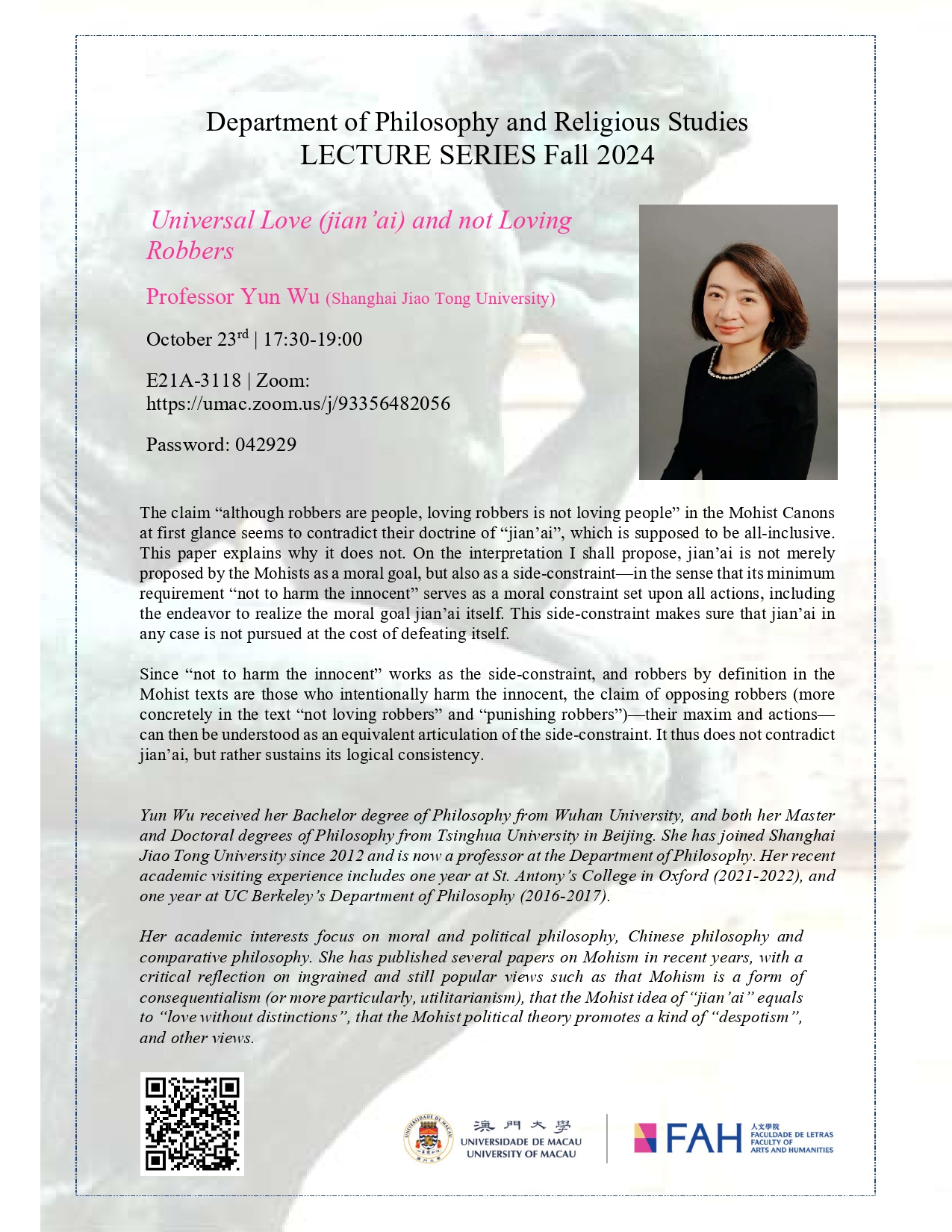

FAH/DPHIL Lecture Series – “Universal Love (jian’ai) and not Loving Robbers” by Prof. Yun Wu, Shanghai Jiao Tong University, China
2024-10-23 @ 5:30 pm ~ 7:00 pm
Zoom: https://umac.zoom.us/j/93356482056
Password: 042929
Abstract
The claim “although robbers are people, loving robbers is not loving people” in the Mohist Canons at first glance seems to contradict their doctrine of “jian’ai”, which is supposed to be all-inclusive. This paper explains why it does not. On the interpretation I shall propose, jian’ai is not merely proposed by the Mohists as a moral goal, but also as a side-constraint—in the sense that its minimum requirement “not to harm the innocent” serves as a moral constraint set upon all actions, including the endeavor to realize the moral goal jian’ai itself. This side-constraint makes sure that jian’ai in any case is not pursued at the cost of defeating itself.
Since “not to harm the innocent” works as the side-constraint, and robbers by definition in the Mohist texts are those who intentionally harm the innocent, the claim of opposing robbers (more concretely in the text “not loving robbers” and “punishing robbers”)—their maxim and actions—can then be understood as an equivalent articulation of the side-constraint. It thus does not contradict jian’ai, but rather sustains its logical consistency.
Bio
Yun Wu received her Bachelor degree of Philosophy from Wuhan University, and both her Master and Doctoral degrees of Philosophy from Tsinghua University in Beijing. She has joined Shanghai Jiao Tong University since 2012 and is now a professor at the Department of Philosophy. Her recent academic visiting experience includes one year at St. Antony’s College in Oxford (2021-2022), and one year at UC Berkeley’s Department of Philosophy (2016-2017).
Her academic interests focus on moral and political philosophy, Chinese philosophy and comparative philosophy. She has published several papers on Mohism in recent years, with a critical reflection on ingrained and still popular views such as that Mohism is a form of consequentialism (or more particularly, utilitarianism), that the Mohist idea of “jian’ai” equals to “love without distinctions”, that the Mohist political theory promotes a kind of “despotism”, and other views.

